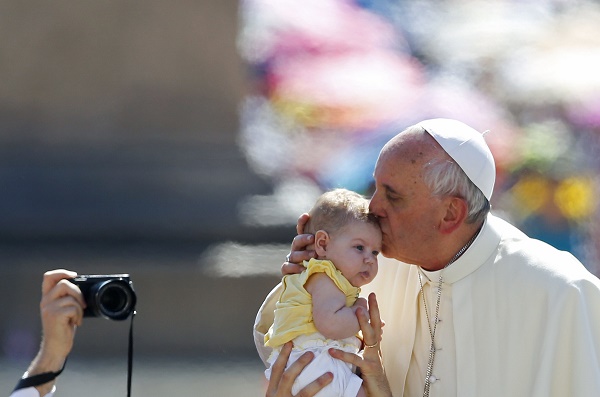
The big theological story today is that the Pope will soon be meeting Patriarch Kirill – his equivalent in the Russian Orthodox church.
It’s remarkable because the heads of the two churches have reportedly never met – presumably since the schism centuries ago, which saw the two parts spun off into separate and competing entities.
What’s interesting, though, is like eBay and Paypal in the late 90s, the two organisations surely have an excellent case to pursue a merger.
The synergies from such an arrangement are obvious: Not only would a merger (or acquisition) knock out the need to compete with each other, but both have large property portfolios, so any merger could enable them to rationalise and cut costs. Changing consumer behaviour has already resulted in dwindling footfall – so there is a lot of excess capacity that can be done away with, and revenues can be re-invested elsewhere (such as onboarding new users, or in trying to win-back lapsed early-adopters).
“Protestantism is able to operate flexibly, like AirBNB”
Product-wise, there would be no “x86 vs PowerPC” here, as both are fundamentally based on the Christianity platform. The products offered by both are nearly identical and operate on a SAAS (Spirituality as a Service - Christenings, Weddings, Funerals, etc) model. Or at least the products are close enough that migrating existing users shouldn’t be too much of a headache.
The merger couldn’t come at a better time too, because of the wider shifting sands in the theological industry. The closest competitor of the combined entity is Protestantism, which operates on a radically different business model – and has achieved much more success in recent decades with explosive growth in the developing world.
The Catholic and Orthodox churches are similar to the hotel industry, in that they have a lot of cash tied up in fixed assets like property, but Protestantism is able to operate more flexibly, like disruptive AirBNB. Sure, the lack of central control means that service is arguably more variable in quality and product – but through one central entity not owning all of its properties, it has enabled Protestantism to expand aggressively, and provide a service which is not just “good enough” but arguably a more localised solution to different local needs.
“Catholicism and Russian Orthodoxy are heritage brands with a lot of PR value”
So a merger seems like a no brainer, right? Such a move wouldn’t be without challenges. For example, both Catholicism and Russian Orthodoxy are heritage brands with a lot of PR value. So while rebranding one to match the other would be good for saving costs, it could mean a marketing, PR or revenue hit in the short term as consumers react. It also means that a potentially valuable intangible asset (the brand that will be phased out) will be reduced to zero (a bit like the headache facing BT as it now has to figure out the disposal of the EE brand).
The fact that the two churches have adopted crowdfunding as their primary source of revenue means that audiences are likely to be hyper-responsive to any changes. Maintaining good will while restructuring will be key.
But I would argue that even in the face of these challenges, the case is overwhelming. If Pope Francis and Patriarch Kirill want to do what’s best for their investors, they’ll start talking.